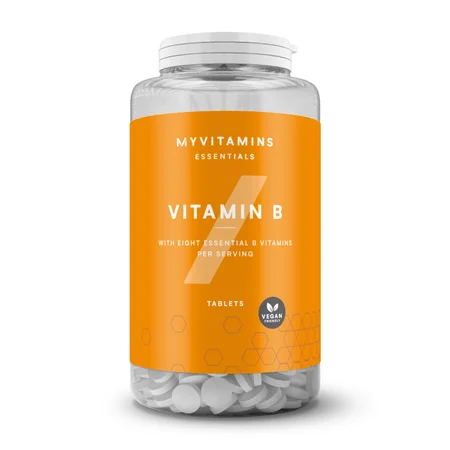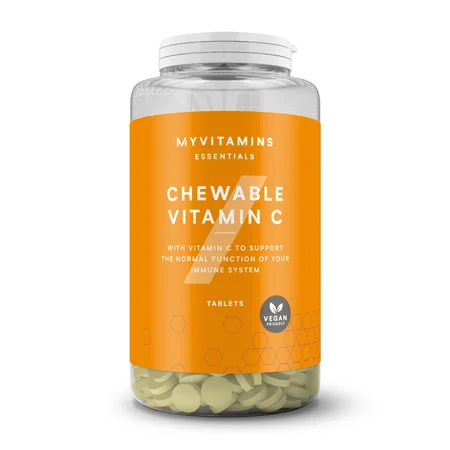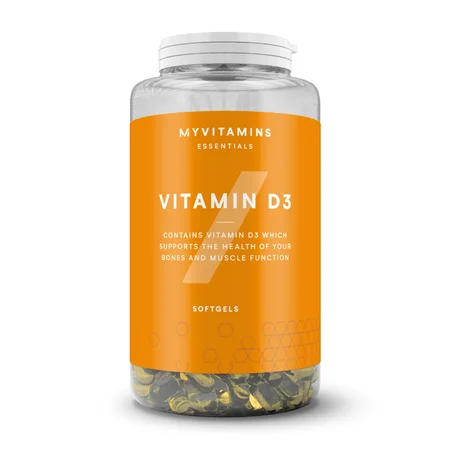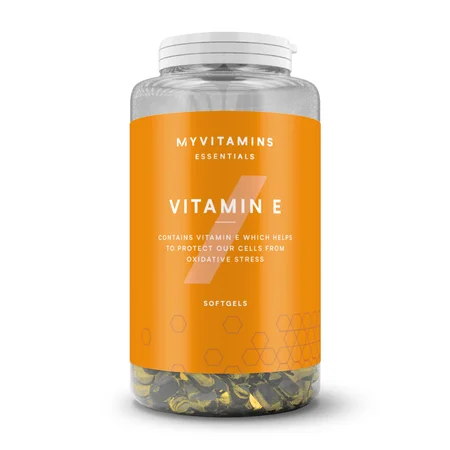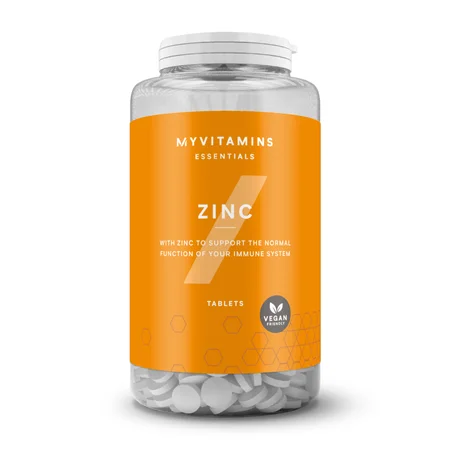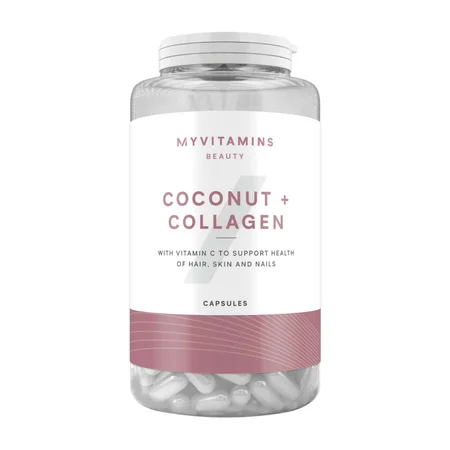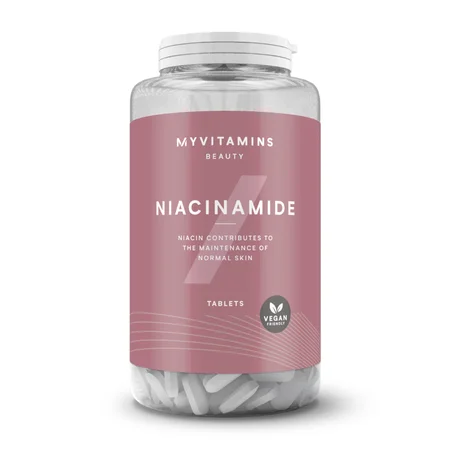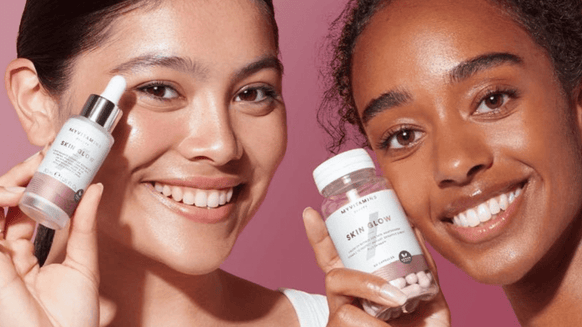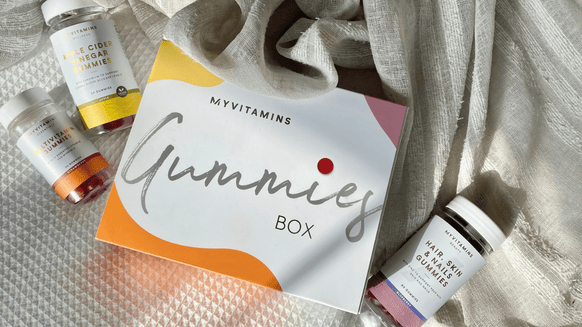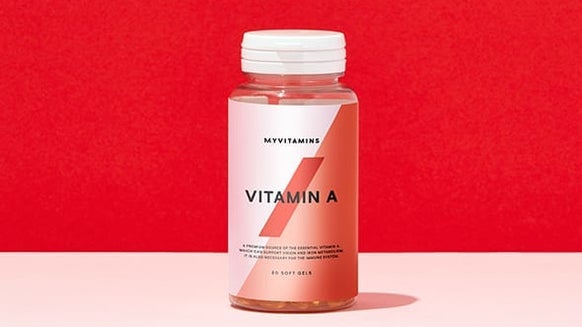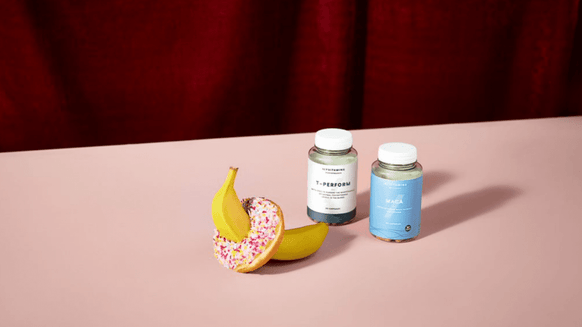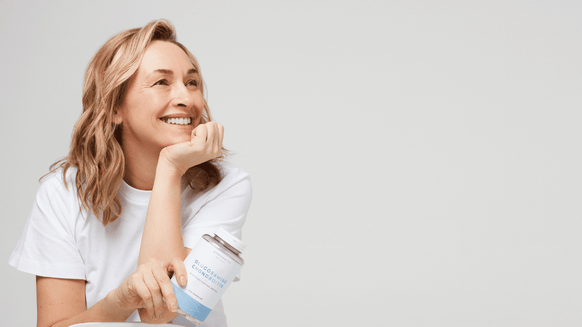A Complete Guide To Vitamins For Skin Repair
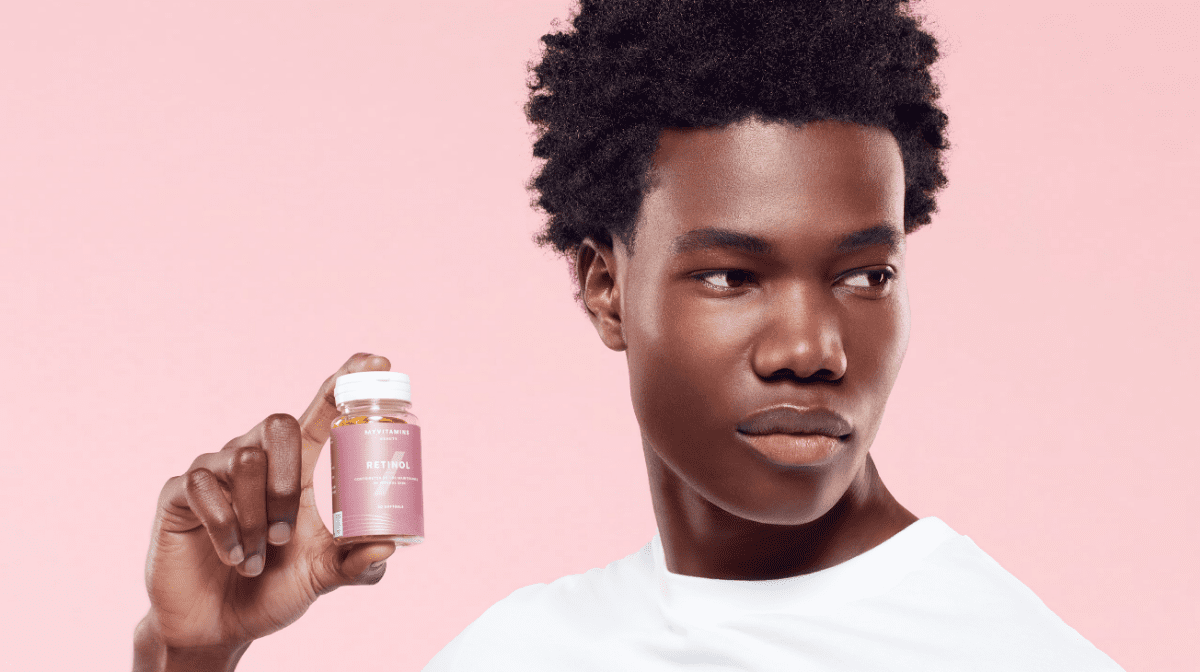
The skin is a dynamic and resilient organ that needs proper nourishment to maintain its health and radiance. In this article, we’ll delve into the world of skin-friendly supplements, highlighting the ten best vitamins and nutrients that can help you achieve and maintain a glowing complexion.
Whether you're looking to combat acne, reduce signs of ageing, or simply boost your skin's overall vitality, these carefully selected supplements offer a natural and effective way to support your skin's healing processes.
- What Is Skin Health Important?
- Signs You Have Healthy Skin
- Signs Of Unhealthy Skin
10 Best Supplements For Skin - Vitamin A (Retinol)
- B Vitamins
- Vitamin C
- Vitamin D
- Vitamin E
- Zinc
- Selenium
- Collagen
- Hyaluronic Acid
- Niacinamide
- FAQs

Why Is Skin Health Important?
Skin health is a fundamental aspect of overall wellbeing, playing a multifaceted role in our daily lives.
Our skin serves as our body’s primary defense mechanism against the outside world. Healthy skin acts as a barrier, shielding us from harmful pathogens like bacteria and viruses, as well as environmental factors such as ultraviolet (UV) radiation and pollution. It prevents these threats from entering our body and causing illness, making it an indispensable part of our immune system.
Signs You Have Healthy Skin
While there are countless skincare products and routines available, understanding the signs of healthy skin is key to seeing what effect those products are having.
1. Smooth texture
One of the most noticeable signs of healthy skin is a smooth, even texture. Healthy skin feels soft to the touch and lacks rough patches and flakiness.
2. Even skin tone
Healthy skin boasts an even and balanced complexion. It should be free from redness, discolouration, or uneven pigmentation irregularities like dark spots or age spots.
3. Hydration
Well-hydrated skin is a hallmark of good health. When your skin is properly moisturised, it appears plump and supple. Dehydrated skin can look dull, feel tight, and even show fine lines more prominently.
4. No acne or blemishes
Healthy skin is typically free from frequent breakouts or blemishes. While the occasional pimple or blackhead is common, persistent acne may indicate underlying skin issues.
5. Minimal sensitivity and irritation
Healthy skin is less prone to sensitivity and irritation such as redness, itching and burning sensations. It also withstands environmental factors like sun exposure and changes in temperature without reacting negatively.

Signs Of Unhealthy Skin
While healthy skin can boost your confidence and contribute to your overall appearance, unhealthy skin can be indicative of underlying issues that need attention. In this section, we'll explore five key signs that suggest your skin may not be at its best. Recognising these signs is essential for addressing potential skin problems and taking steps toward healthier skin.
1. Dryness and flakiness
Dry, flaky skin is often a telltale sign of skin that lacks proper hydration. When your skin doesn't receive enough moisture, it can become dry, tight, and prone to flaking.
2. Excessive redness or irritation
Persistent redness or irritation is a clear sign that your skin may be reacting negatively to environmental factors or skincare products. Conditions like rosacea and eczema can cause chronic redness and discomfort.
3. Acne breakouts
While occasional breakouts are normal, persistent or severe acne can signal an imbalance in your skin. Factors like excess oil production, hormonal fluctuations, or bacterial overgrowth can contribute to acne.
4. Uneven skin tone and hyperpigmentation
Uneven skin tone, characterised by dark spots, sunspots, or patches of hyperpigmentation, can indicate sun damage or inflammation. Prolonged exposure to UV rays without the right protection can lead to skin discoloration. Dark spots may also result from acne scarring or hormonal changes.
5. Excessive sensitivity
Skin that is overly sensitive and prone to frequent reactions (such as redness, itching, or burning) may indicate an impaired skin barrier. A weakened skin barrier can result from factors like harsh skincare products, environmental stressors, or underlying skin conditions.

10 Best Supplements For Skin
In the pursuit of radiant, healthy skin, skincare routines and lifestyle choices often take centre stage. However, the role of nutrition and supplementation in achieving and maintaining beautiful skin should not be underestimated. Here are the 10 most important vitamins, minerals and nutrients for supporting your skin:
1. Vitamin A (Retinol)
Vitamin A plays a critical role in skin cell turnover. It helps produce new skin cells while simultaneously helping to shed old, damaged cells. This process contributes to a smoother and more even skin texture.
It also supports the production of collagen, a structural protein that gives skin its elasticity and firmness. Having enough collagen in your skin can reduce the appearance of fine lines and wrinkles, promoting a youthful complexion (1).
Many skincare products contain retinol or other retinoids, which are all forms of vitamin A. Both topical products (serums, moisturisers, eye creams) and supplements containing vitamin A can help keep your skin looking and feeling its best.
2. B vitamins
B vitamins are crucial to making DNA and RNA, which facilitate cell division and regeneration. This is key to the growing new, healthy skin cells and repairing damaged ones, contributing to a smoother and more youthful complexion.
Vitamin B5, also known as pantothenic acid, also supports the skin's natural barrier function. It helps to lock in moisture, preventing dryness and promoting soft, supple skin (2).
3. Vitamin C
Vitamin C is a powerful antioxidant that helps neutralise free radicals produced by factors like UV radiation and pollution. Through this, it reduces oxidative stress and damage to skin cells, which can contribute to premature aging and skin conditions.
It is also essential for making collagen, so if you are supplementing collagen try to get enough vitamin C at the same time. Or look out for collagen products that already have vitamin C in, like Myvitamins Beauty Collagen powder and Collagen Gummies.
Vitamin C has skin-brightening properties that can fade hyperpigmentation, dark spots, and uneven skin tone. It inhibits the production of excess melanin, the pigment responsible for these issues, resulting in a more even complexion (3).
4. Vitamin D
Vitamin D contributes to maintaining the integrity and functionality of the skin barrier, which is crucial for preventing moisture loss and protecting against environmental irritants. A healthy skin barrier helps maintain skin hydration and reduces the risk of dryness and irritation.
Vitamin D is also known for how it supports the immune system. Having enough vitamin D can help the skin's immune cells effectively combat pathogens, reducing the risk of infections and inflammatory skin conditions (4).
5. Vitamin E
Vitamin E, like vitamin C, is a potent antioxidant that helps defend the skin against the harmful effects of free radicals and limit oxidative stress.
Vitamin E is also known for its ability to lock in moisture and maintain skin hydration. It strengthens the skin's natural barrier function, reducing water loss and contributing to softer, more supple skin (5).
6. Zinc
Zinc is essential for the body's natural wound healing processes. It contributes to tissue repair, cell growth, and the formation of new blood vessels, making it valuable for the healing of wounds, cuts, and skin injuries.
Zinc also has anti-inflammatory properties that can help calm and soothe irritated skin. It may be beneficial for individuals with inflammatory skin conditions like acne, rosacea, or eczema (6).
7. Selenium
Selenium is a vital component of an antioxidant enzyme (glutathione peroxidase) that helps protect skin cells from oxidative damage caused by free radicals.
Selenium also supports the immune system by aiding in the production of antibodies and assisting immune cells in their functions. A strong immune system is essential for the skin's ability to combat infections and maintain its overall health (7).
8. Collagen
Collagen supplements may enhance the skin's elasticity, leading to a smoother and firmer appearance. As we age, collagen production naturally declines, contributing to sagging and wrinkles. Collagen supplementation can help counteract this process.
Collagen also supports the skin's structure and plumpness. Regular supplementation may help reduce the appearance of fine lines and wrinkles, particularly those caused by age-related collagen loss.
Finally, collagen helps the skin retain moisture, contributing to a more hydrated and youthful complexion. This can be especially useful if you have dry or dehydrated skin (8).
9. Hyaluronic acid
Hyaluronic acid has a remarkable capacity to attract and retain water molecules. When taken as a supplement, it can help increase skin hydration from within, leading to plumper, more supple, and youthful-looking skin. (9)
10. Niacinamide
Niacinamide is a form of vitamin B3. It helps strengthen the skin's natural barrier, reducing moisture loss and preventing environmental irritants from penetrating the skin.
Niacinamide also has anti-inflammatory properties that can soothe redness and calm irritated skin.
Finally, niacinamide can help regulate sebum (oil) production, which can lead to reduced pore size and a more refined skin texture. This makes it valuable for individuals with concerns about enlarged pores (10).
You can add niacinamide to your skincare routine topically in a serum or moisturiser, or as a supplement like a capsule or gummy.

Talk To Your Doctor
Myvitamins are not making any medical claims in this article. If you are concerned about the health of your skin, or looking to improve your skin’s health, consider speaking with your doctor.
Take Home Message
In this comprehensive guide to skin health, we've explored the importance of skin wellness and how various vitamins and supplements can support your skin's vitality. From vitamin A to hyaluronic acid, each nutrient offers unique benefits, from improving hydration and reducing wrinkles to protecting against environmental damage and promoting healing. If you’re looking to improve the health of your skin, consider incorporating these supplements into your diet and skincare regimen.
FAQs
What vitamin helps with skin healing?
Vitamins that help with skin healing include vitamin A, vitamin C, vitamin E, and zinc. These vitamins play essential roles in collagen production, tissue repair, and antioxidant protection, which collectively support the body's ability to heal wounds and maintain healthy skin.
What is the best vitamin for skin elasticity?
The best vitamins for skin elasticity include vitamin C, vitamin E and vitamin A. These vitamins contribute to collagen production, skin hydration, and the overall structural integrity of the skin, promoting greater elasticity and firmness.
Which supplements should I take for skin?
Supplements that can benefit the skin include vitamin A, vitamin B, vitamin C, vitamin D, vitamin E, zinc, selenium, hyaluronic acid, niacinamide, and collagen. These supplements support various aspects of skin health, including hydration, collagen production, and protection against damage, when taken as part of a balanced diet and skincare routine.
How can I improve my skin health?
To improve skin health, drink plenty of water to keep your skin hydrated from within. You can also focus on consuming a diet rich in fruits, vegetables, and antioxidants for essential nutrients. Always use suncream to shield your skin from harmful UV rays. High stress levels can also affect the skin, so practice stress-reduction techniques like meditation or yoga. Aim for 7-9 hours of quality sleep per night to allow your skin time to repair and regenerate.

- VanBuren, C. A., & Everts, H. B. (2022). Vitamin A in Skin and Hair: An Update. https://www.ncbi.nlm.nih.gov/pmc/articles/PMC9324272/
- Elgharably, N., Al Abadie, M., Al Abadie, M., Ball, P., & Morrissey, H. (2022). Vitamin B group levels and supplementations in dermatology: Review of the literature. https://www.ncbi.nlm.nih.gov/pmc/articles/PMC10099312/
- Pullar, J. M., Carr, A. C., & Vissers, M. C. M. (2017). The Roles of Vitamin C in Skin Health. https://www.ncbi.nlm.nih.gov/pmc/articles/PMC5579659/
- Mostafa, W. Z., & Hegazy, R. A. (2015). Vitamin D and the skin: Focus on a complex relationship: A review. https://www.ncbi.nlm.nih.gov/pmc/articles/PMC4642156/
- Keen, M. A., & Hassan, I. (2016). Vitamin E in dermatology. https://www.ncbi.nlm.nih.gov/pmc/articles/PMC4976416/
- Gupta, M., Mahajan, V. K., Mehta, K. S., & Chauhan, P. S. (2014). Zinc Therapy in Dermatology: a Review. https://www.ncbi.nlm.nih.gov/pmc/articles/PMC4120804/
- Bjørklund, G., Shanaida, M., Lysiuk, R., Antonyak, H., Klishch, I., Shanaida, V., & Peana, M. (2022). Selenium: An Antioxidant with a Critical Role in Anti-Aging. https://www.ncbi.nlm.nih.gov/pmc/articles/PMC9570904/
- Bolke, L., Schlippe, G., Gerß, J., & Voss, W. (2019). A Collagen Supplement Improves Skin Hydration, Elasticity, Roughness, and Density: Results of a Randomized, Placebo-Controlled, Blind Study. https://www.ncbi.nlm.nih.gov/pmc/articles/PMC6835901/
- Oe, M., Sakai, S., Yoshida, H., Okado, N., Kaneda, H., Masuda, Y., & Urushibata, O. (2017). Oral hyaluronan relieves wrinkles: a double-blinded, placebo-controlled study over a 12-week period. https://www.ncbi.nlm.nih.gov/pmc/articles/PMC5522662/
- Bissett, D. L., Oblong, J. E., & Berge, C. A. (2006). Niacinamide: A B Vitamin that Improves Aging Facial Skin Appearance. https://pubmed.ncbi.nlm.nih.gov/16029679/

